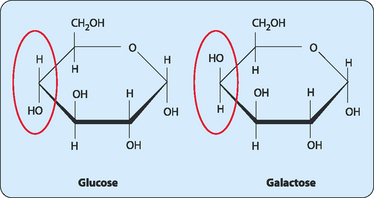chapter 19 Specialised tissue metabolism
 Many cells and tissues have very specific metabolic pathways to allow them to fulfil their role in the body.
Many cells and tissues have very specific metabolic pathways to allow them to fulfil their role in the body. The alveolar epithelial cells of the mammary gland have specialised carbohydrate metabolism to produce lactose.
The alveolar epithelial cells of the mammary gland have specialised carbohydrate metabolism to produce lactose. The cells of the central nervous system—neurones and glial cells—have specialised amino acid metabolism to allow them to synthesise and recycle neurotransmitters.
The cells of the central nervous system—neurones and glial cells—have specialised amino acid metabolism to allow them to synthesise and recycle neurotransmitters. The parietal cells of the stomach drive the transport of protons against the largest concentration gradient in the body to produce hydrochloric acid in the stomach.
The parietal cells of the stomach drive the transport of protons against the largest concentration gradient in the body to produce hydrochloric acid in the stomach.Specialised metabolism
Many cells, and therefore tissues of the body, have the common pathways of catabolism and anabolism described in Chapters 16 and 17. However, some tissues have specific metabolic pathways that allow those tissues to fulfil their role. The liver, for example, has the complete gluconeogenic pathway allowing it to control blood glucose levels and the β-cells of the pancreas ‘tune’ their metabolism to release insulin in response to an increase in blood glucose.
Lactose production in the mammary gland
Chapter 15 details how the body deals with lactose that is ingested as part of the diet so that the body can access the energy in this carbohydrate. However, mammals also produce lactose as part of the milk secreted from the mammary glands.
Lactose is a disaccharide of glucose and galactose. Glucose is readily available and some galactose can be obtained from the diet. However, if needed, the alveolar epithelial cells can synthesise galactose. Galactose is an epimer of glucose, differing only in the arrangement of the atoms around the C4-carbon (Fig 19-1).
The initial stages of lactose production are also the initial stages of glycogen production (Fig 19-2
Stay updated, free articles. Join our Telegram channel

Full access? Get Clinical Tree





